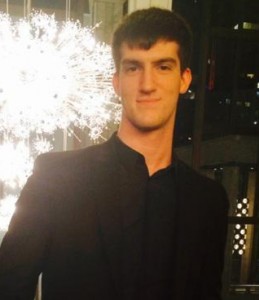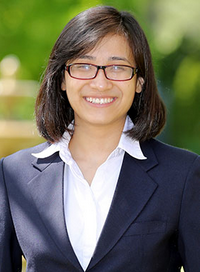A sample of Honors College students explain what they think makes a student flourish in the classroom. The ideas they present play off of philosophical ideas of open-mindedness.
by Jordan Chapman

Adelphi’s Honors College is the intellectual center for 285 undergraduate students. That means that, of the 7,610 enrolled students this academic year, Honors College students make up fewer than 4 percent of the Adelphi student body.
What, then, makes an Honors student? Is it their outstanding GPAs, high school class ranks, SAT or ACT scores and academic achievements? Those prerequisites describe some criteria to be considered for the Honors College, but they also characterize students by their measurable outputs. What is it about the Honors student, then, that allows their passion and drive for education to take hold and flourish?
We queried a sample of Honors students and their ideas weren’t as varied as one might suppose: The wish to remain available to all viewpoints and possibilities while learning is at the forefront. What’s interesting is that these students were essentially quoting the definition of open-mindedness, of which John Dewey—American philosopher, psychologist and education reformer—and Bertrand Russell—British philosopher, logician, mathematician, historian, writer, social critic and political activist—described as an essential aim of any education.
Dewey said, “[Open-mindedness] includes an active desire to listen to more sides than one; to give heed to facts from whatever source they come…to recognize the possibility of error in the beliefs that are dearest to us.” Russell believed open-mindedness in education to be a virtue, one that allows earlier beliefs to be revised or abandoned if necessary.
Allen Barbarovich, freshman Honors student in biochemistry, described the term in an equally effective way. “I think you learn a lot more, and you learn a lot more thoroughly, when you’re learning for the sake of learning,” he said. In contrast, when learning with a set objective, “you’re putting up a blinder of sorts to different opportunities you could have been exposed to along the way,” he said.
Honors College students interviewed echoed Barbarovich’s sentiment: wanting to learn for the sake of learning. The wanting is key. “If you want to learn, then you’re absolutely going to,” said Kelly Hiersche, Honors College sophomore enrolled in the joint degree pre-engineering program with Columbia. She’s also a member of Adelphi’s women’s soccer team.
Hiersche described her education in the Honors College to be as daunting as deconstructing Shakespeare’s sonnets to as simple as conversing with classmates, who, she and others noted, have an incredible range of backgrounds.
“[The Honors students are] a special breed in that they relish a diversity of perspectives on things,” said Craig Carson, Ph.D., assistant professor in the Department of English. He emphasizes this philosophy—to learn without agenda—in each of his classes. “I try to reach beyond professional aspirations into what one does when you don’t think about work…to think about the other aspects of what an education actually allows access to.” He believes this teaching style has a better chance to transition into outside-the-classroom peer discussion in a more natural way, which in turn helps the subject matter affect how students might live their day-to-day lives. He also feels strongly that college graduates who are habitually active classroom participants are better prepared to engage with their communities in public discourse after graduation.
“Each one of us is encouraged to share our ideas in class, but we are also equally challenged by conflicting opinions coming from our classmates,” said Anustha Shrestha ’15, a recent graduate in economics. “Therefore, we need to push ourselves to question more, accept new ideas and think critically.”
So the goal here is constant open-formatted learning, and attaining that goal isn’t always easy. Sometimes accepting new ideas is the hard part, but that seems to be half the fun for these students. They are in the Honors College because they have the capacity to remove any biased filter and accept new ideas for what they are—brand-new knowledge. It’s like currency here, and it’s free-flowing.
So what makes an Honors student?
“You have to want to share your ideas. You have to want to hear what others think,” Hiersche answered.
“The commitment and drive to learn is the first quality,” Shrestha said.
“The same thing that makes a successful person: a healthy dose of ambition,” Barbarovich stated.
For further information, please contact:
Todd Wilson
Strategic Communications Director
p – 516.237.8634
e – twilson@adelphi.edu


